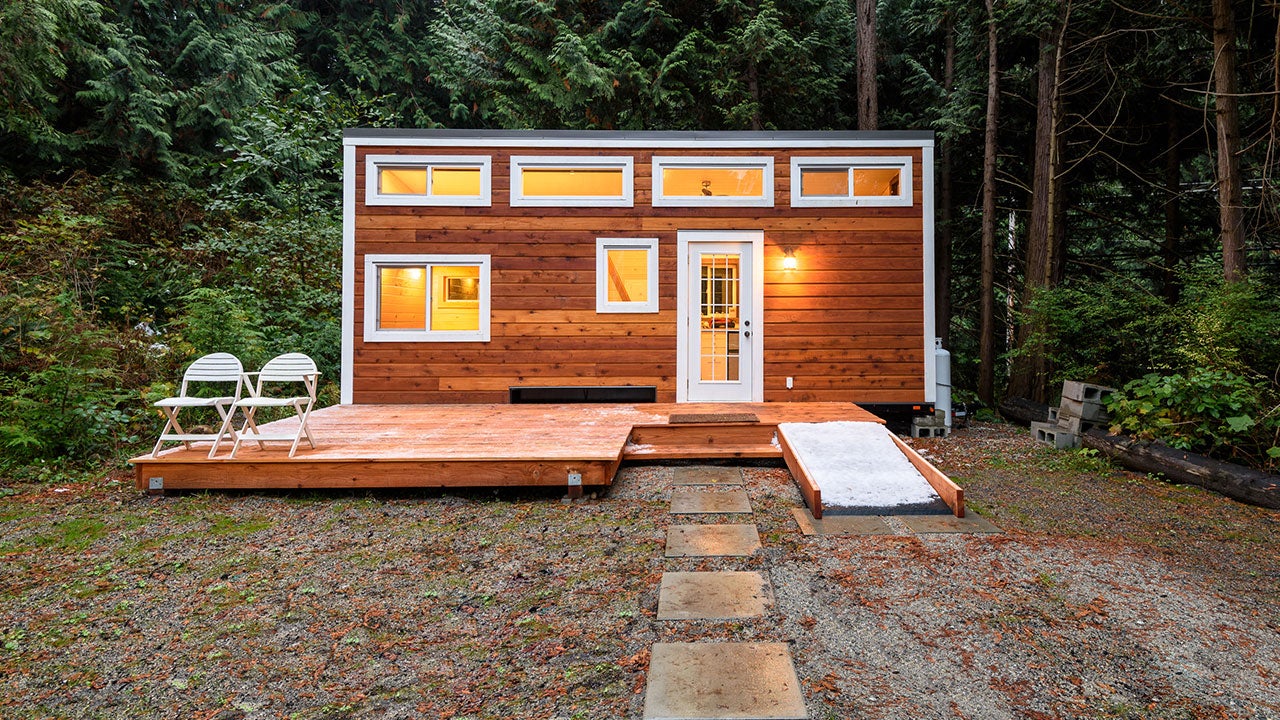Tiny houses are becoming increasingly popular in the United States as a more sustainable and affordable housing option. However, there is still much confusion about whether or not they are legal. In the state of Georgia, there are no specific laws regulating tiny houses.
This means that each city and county has the authority to decide whether or not to allow them within their jurisdiction. Some cities, like Atlanta, have already started to embrace tiny houses by creating designated zoning areas for them. However, other cities are still struggling to figure out how to deal with these small structures.
Tiny houses are a popular housing trend, but you may be wondering if they are legal in the state of Georgia. The good news is that yes, tiny houses are legal in Georgia! There are a few things to keep in mind when building or living in a tiny house in Georgia, however.
First, all homes in Georgia must be built to meet certain minimum standards for safety and habitability set forth by the state. This includes having adequate plumbing and electrical systems, as well as meeting fire safety requirements.
Second, your tiny house must be on a foundation that complies with local building codes.
This means that if you plan to build your own tiny house, you will need to get a permit from your local planning and zoning department first.
Third, because tiny houses are considered alternative dwelling units (ADUs), there may be some restrictions on where they can be located within a city or county. For example, some jurisdictions only allow ADUs in certain areas or zones within the community.
Be sure to check with your local planning and zoning department for any specific regulations that apply to ADUs before you begin construction on your tiny house.
Overall,tiny houses are legalin Georgia as long as they meet the minimum standards for safety and habitability set forth by the state and local municipalities. If you have any questions about building or living in a tiny house in Georgia, be sure to contact your local planning and zoning department for more information.
What are the Requirements for Building a Tiny House in Georgia
There are a few requirements to follow when building a tiny house in Georgia. First, the maximum height for a tiny house is 13.5 feet and the maximum width is 8.5 feet. The length of the house can be up to 32 feet long.
The second requirement is that the tiny house must have at least one sleeping loft that has a minimum ceiling height of four feet and a maximum ceiling height of eight feet. Lastly, all plumbing, electrical and heating systems must meet state and local code requirements.
When it comes to zoning regulations, there unfortunately isn’t a statewide rule in place for where you can put your tiny home.
This means you’ll need to check with your city or county’s planning and zoning department to see what restrictions are in place for where you want to park or build your home. You may also need to get a permit before being able to legally live in your tiny home on wheels.
What are the Legal Implications of Living in a Tiny House
Assuming you are talking about the United States, there are a few different things to consider when thinking about the legal implications of living in a tiny house. For starters, most municipalities have minimum size requirements for houses, so your tiny house would need to meet those requirements. Additionally, you would need to make sure your tiny house is up to code in terms of things like electrical wiring and plumbing.
Finally, you would need to find a place to put your tiny house that is zoned for residential use.
Are There Any Restrictions on Where Tiny Houses Can Be Located
Tiny houses are becoming an increasingly popular housing option for people looking to downsize or live more simply. But as with any new trend, there are bound to be some hurdles and regulations to work around. So the question becomes, are there any restrictions on where tiny houses can be located?
The answer is yes and no. In some states and municipalities, there are very few regulations governing where tiny houses can be placed. This allows for a great deal of flexibility when it comes to finding land to park your tiny house on.
However, other states and municipalities have much stricter rules in place. For example, in Florida, all tiny houses must be built on foundations in order to meet hurricane safety codes. And in New York City, the building code prohibits anything under 400 square feet from being considered a dwelling unit, effectively banning mosttiny houses outright.
So if you’re considering going tiny, it’s important to do your research ahead of time to see what kind of regulations exist in your area. With a little bit of legwork, you should be able to find a spot for your Tiny House that works for both you and the local authorities!
Tiny Homes Are Now LEGAL!!!
Conclusion
Georgia is a great state for tiny houses because there are no statewide regulations on them. However, each county and city has its own zoning rules, so it’s important to check with your local government before you build or move a tiny house to Georgia. Some counties allow tiny houses in all residential areas, while others have more restrictions.
For example, Fulton County only allows tiny houses on wheels in agricultural and forestry districts.

